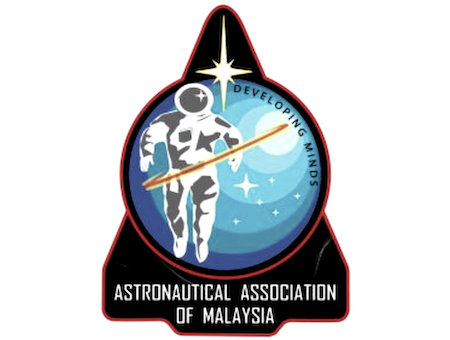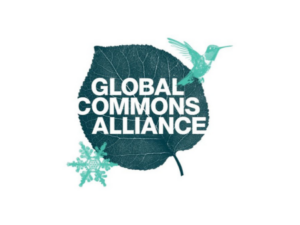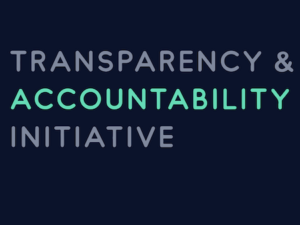AstroX (Astronautical Association of Malaysia) is increasing science education and engagement in Malaysia. One of the first efforts was bringing rocket-building to schools.
Faiz Kamaludin of AstroX spoke with Jessica Kantor on April 12, 2023. Click here to read the full conversation with insights highlighted.
Jessica Kantor: Can you please introduce yourself, your organization, your role in the organization and the problem that you are addressing?
Faiz Kamaludin: My name is Mohammed Faiz Bin, people just call me Faiz and my organization is called AstroX. It stands for Astronautical Association of Malaysia. Our social mission is very simple: we promote the knowledge of science to school children. Initially, we did this by teaching them rocketry, building solid fuel rockets. We got grants to go across Malaysia. We went to every state, every school from the Chinese school to different smart schools, rural schools and we developed another program for high school students to build advanced rocketry. Our organization is just a few members and we need teachers to get involved, so we built an app for teachers and we put in 18 rocketry modules, the app was free. We had 25 schools start with the pilot project, but there was no real traction.
So I created a new company to bring students to the planetarium. We were gaining momentum for three years. I think it was 12,000 children that we served to 27 and up to 30 something thousand. But that derailed due to COVID. So, we went online. We worked with some companies from the United States and Australia to bring programs, like a live NASA feed where they could see Houston and the rocketry programs there. Now we’ve evolved further into programs such as NASA space camps and also ocean school in Australia. We’re always evolving and I took on the leadership role now because during the pandemic, I founded a movement called Space View. I got all the space community organizations, from educators to businesses, to power the movement.
We are talking about space education, space commerce and also the commercialization of space products. One good example is the Czech Republic, representing the European Union, wanted to make an investment. We had to design a feasibility study. And there’s a difference between the space industry and the aerospace industry. We got the proposal and I think some of the companies were successful. Malaysia is sending pilots for training in the Czech Republic and some are graduating. You can start to see the fruition of what our efforts are doing in the past few years.
Jessica Kantor: How do you gain access to the students? Do you partner with government organizations? Do you partner directly with the school system?
Faiz Kamaludin: Initially, it was just random. We saw if there were any schools, and then we went through the proper channels with the ministry. So, we do work with the ministries. How I got involved in this field, just rewind back in time to 2006, Malaysia wanted to send an astronaut and it was open to the public. From 11,000 candidates, I got into the top four. I went to Russia for training, and when I came back, of course, I didn’t get to go to space, but I started to do all this community work and trying to educate kids. There was a study indicating a real drop in terms of interest in science. Literacy in science was on a decline. That’s why we started to try to excite them, and we started with the rocketry workshops.
Through the years, working with the Ministry of Science and Technology and the planetarium, I built up my contacts. Any time they have projects now, they always call on us because we are fast, we are nimble, and we can get it done. In 2020, when I formed this consortium of like-minded people in the space community, they threw the biggest world space week for Malaysia, and it was a big success. Now the government has taken over again and it is not getting that hype. So, maybe next year, they will call on us again to do this kind of stuff. As long as I do the work behind the scenes, little by little, there will be some impact there.
Jessica Kantor: And how exactly are you measuring success?
Faiz Kamaludin: Initially, we did a balance scorecard where we asked how many students did we reach? When I give a talk, people clap, but you can’t really measure that, right? So, we give out a questionnaire to everyone, maybe like 20 students. And my team will interview them and we will find out what they really want. For three years, we put out a report, but it was academically correct, because it’s not based on any theories. That’s why in 2019, I started to do my PhD on social entrepreneurship and sustainability and I developed a framework that connects social entrepreneurship and sustainability. Now I have a better understanding of the difference between practitioners, what is practical out there in the world, and also the academic side in terms of theories. For the rocketry workshops, I produced two papers and a booklet, so people can see the impact that we are getting to the kids.
Jessica Kantor: What makes your approach distinctive, do you think?
Faiz Kamaludin: I believe in terms of the power of networking during my research, I think the Silicon Valley mindset is important where if we have people in the industry and in the sector, we don’t have to work against each other. Even though you are my direct competition, you are an educator. You have programs to teach kids, but we can actually combine like Google or Microsoft. They are in the same market space, but if we share resources and we work together, we can forward the movement easier. They call it the abundance mindset, which I try to promote and I think it’s gained a lot of traction. We have a lot of members. If you need something, let’s say I need to contact a minister, I would ask who knows this person and I’ll get inroads to them. I make sure I have a good right hand man or VP that can do the groundwork. It’s very important I think in terms of system change to have a strong network of people and leaders in the organization.
Jessica Kantor: Every social innovator learns from something that they shouldn’t do or something that didn’t work as much as things that did work. Did you have anything that didn’t work that you can share so that others can learn that lesson?
Faiz Kamaludin: A good example is our app. Within Malaysia, I forgot the numbers now, there are thousands of teachers. We thought we could just capture 5% of those teachers who are passionate, because I’m passionate about aerospace education, if they take on the syllabus and they teach these kids. We thought what we needed to do first was go to the ministry. That took some time, and to develop a syllabus. Once the syllabus was approved, we couldn’t go directly into schools with an aerospace subject in the syllabus, we had to do an extra-curricular program. Somebody from school could join the scouts or become a member of the astronautics club.
Unfortunately, with the app and with the pilot program driving it, there was just no traction. What we learned is that, you could think that it’s something important, but in the end, if the market doesn’t need it or the students don’t want it or the teachers are not adopting it, it’s not going to work. So, we had to re-strategize, go back to the basic model of hiring staff, going out and getting the involvement, bringing them to planetariums, going to school. That’s what we learned from our failure in a sense.
Jessica Kantor: Do you have any current limitations that you’re facing that you haven’t been able to overcome yet, aside from raising sufficient funding?
Faiz Kamaludin: We had to go through two elections and the network that we built with the higher minister’s changes. So, we got an approval letter from this minister and now it’s changed to another minister, so you have to redo the work again. Those are some obstacles and limitations that we face. Other than that, the civil servants, the workers that are in the science ministry or in the planetarium are still the same people. So, we can still forward our programs, but the director general has changed so we need to build new relationships. So, I think it boils down to your network itself. The obstacles will be trying to establish new relationships and new connections with people in power.
Jessica Kantor: Are you working towards advancing systems level change in your field right now?
Faiz Kamaludin: I do things behind the scenes. I’m very much process orientated, not outcome orientated. So, I don’t have a particular outcome that I want to achieve. So, it is always doing things behind the scenes. We want to get science literacy up and, in general, just to get kids more involved in science. Have more graduates or university students that are taking science subjects. Because now anybody’s going through arts and business, this interests them more. So, just trying to promote science generally.
In terms of systems change, it’s very unpredictable. I don’t have a real outcome goal that I want to achieve. I hope for some favorable outcome where a new child is born, and a few years later, he will have a proper guidance or path into education, especially in the science stream. That’s what I’m interested in.
Jessica Kantor: How do you see your work in this area specifically evolving over the next five years?
Faiz Kamaludin: I’ve been in this field for 13 years, and I see tremendous growth. Now, Malaysian companies are building satellites, they’re looking at payloads, they’re looking at communication satellites. There’s three or four major companies. And in terms of space commerce, I can see university students turning into social enterprises, they’re developing rockets and then they’re getting funding. Then from the education side, a lot of new programs involving science. So, I see a lot of growth. And I think within the next five years, if Malaysia can improve in terms of the science literacy and interest in this field, we could probably send another astronaut up or send some payload up and probably have a space spot.
I hope commercialization of space products and space related items or businesses will progress in Malaysia. It is not on top of the national agenda, space industry and aerospace is not something that is heavily promoted or talked about because we are talking about other issues that the country is facing.
Jessica Kantor: Is there anything that we didn’t cover during this interview that you feel is very important to add to the conversation?
Faiz Kamaludin: I think knowledge is important, education is important, in a sense, personal involvement. For me, I’m a commercial pilot, I fly the 777s. When I went to Moscow in Star City, I met American astronauts that hadn’t been to space yet but had a very positive mindset, they said, don’t worry, everybody here is special. We will go to space one day. They were all very qualified with PhDs, Master’s degrees. And at that time, I didn’t have anything. When I came back from the program, it inspired me. So, I did my master’s and then completed my doctorate. I think in terms of personal growth, people should pursue knowledge. It doesn’t have to be in the space industry, in any field that they’re interested in. To get it out there, it is key.
I hope there’s some succession plan for my work. I’ve trained good people and I hope that once I retire, that other people, especially the youth, can continue. Leadership is good, but you need to pass it on to the new generation. I hope they’ll continue our programs, whatever structure that we have put in place, the connections, that it will be continued in Malaysia. Not just Malaysia as well, but globally, Malaysia will be recognized as a player in the space industry because I think we have a lot of talent out there. Nothing can be done in a day, nothing can be done in a year. It takes a decade, sometimes more. But progressively, you need to keep on that daily work. That’s important to change makers or social innovators out there. It is not a straight success story immediately. You cannot really control the environment because you have other stakeholders involved. So, you can only do your bit and hope that other players fall in. But change makers, I think as a general advice, never give up, be passionate about what you’re doing. If you don’t like it, quit. If you want, stick with it.
Jessica Kantor: Thank you so much.
Click here to read the full conversation with insights highlighted.
Jessica Kantor is an independent journalist specializing in health, human rights, and social impact. Her work can be found in Fast Company, Healthcare Quarterly, The Las Vegas Review-Journal, and others. She is a living kidney donor.
* This interview has been edited and condensed.
Find other organizations working with STEM in social innovation.







